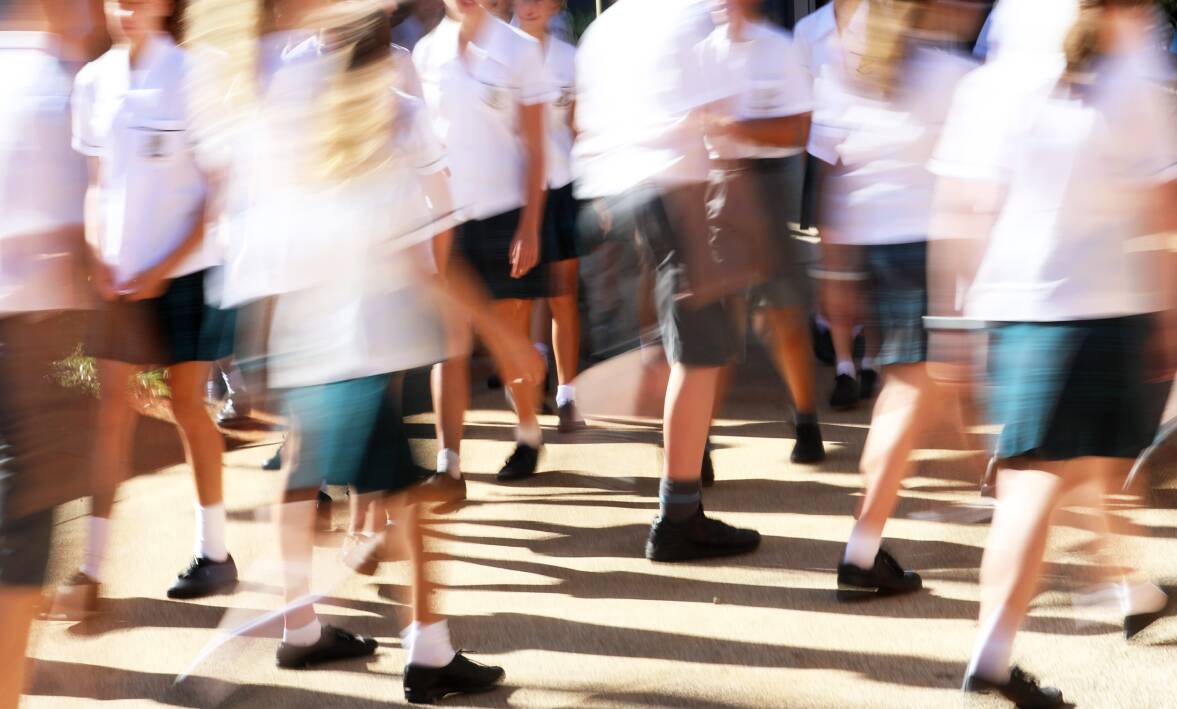
Aside from how lucky you were in the parents lottery, the two things that most determine your life chances are your health and education outcomes. Of these, education is the one which can be readily improved for all kids. Across the Hunter, however, this simple truth is being ignored.
In 2009, the state premier, Labor's Nathan Rees, raised the school leaving age to 17. The aspiration for NSW kids was clear. "It will ultimately enhance their employment capacity," said the premier, "enhance their earning potential over the course of their employment, and set NSW up for the long term as the clever state."
The evidence for keeping kids in school longer was clear. Australian Bureau of Statistics figures showed that early school leavers were two-and-a-half times more likely to be unemployed, while those who progressed beyond the HSC to complete a post-school qualification, either at TAFE or university, substantially increased their lifelong earning power.
A decade and a half on and it seems the Hunter's schools, at least not enough of them, aren't delivering the goods, especially in the government sector. A dig into HSC results across the Hunter is a bleak exercise. My statistics come from the HSC data bases available on the websites of Sydney's two major newspapers. Both sites calculate an index which measures the proportion of a school's HSC subject entries awarded a band six result. A band six score typically means a student has performed in the top 15 per cent of scores in an HSC subject. Across NSW, the Sydney Morning Herald reports that the median index of band six outcomes in schools for both 2022 and 2023 was 5.5 per cent.
In 2022 only three government high schools in the Hunter achieved band six outcomes above this state median. In 2023 nothing changed for this small group. Once again, only three of the Hunter's 34 government high schools - the same three as 2022 - performed above the state median. Across the board, however, HSC results have worsened. In 2022, eight government high schools had gone backwards compared to 2021 outcomes. In 2023 the number of government high schools going backwards compared to 2022 jumped to 13.
Also alarming is the number of government high schools in the Hunter in the bottom tiers of HSC rankings statewide. In 2023, 14 government high schools in the Hunter scored in the bottom 20 per cent of NSW schools, with seven of these in the bottom 10 per cent. Bluntly, a government high school in the Hunter is twice as likely as any school statewide to be in the bottom 20 per cent of HSC results.
Last year, in a similar column, I asked why so many government high schools in the Hunter performed so poorly in the HSC. I dismissed as absurd the possibility that local kids had less ability. What could be the explanation, I asked. Funding levels? Class sizes? School management? Bad parenting? Low expectations? Poor school attendance? Lack of motivation and incentive? It needs saying that the HSC performance problem seems absent from the Hunter's non-government sector. For the 14 non-government schools in the Hunter where there are entries in the newspaper data bases, exactly 50 per cent scored above the state median for band six outcomes.
Significantly, nine of these schools - around two thirds - improved their 2023 outcomes compared to 2022.
Once upon a time, there was a well-staffed office of education in Newcastle with a prominent regional director and a team of experienced professional staff who would not have allowed standards in their patch to decline. Today, the NSW Department of Education's organisational chart gives little prominence to the regions. Dedicated regional resources have dried up. Local administrators with intimate knowledge of their patch are a rarity.
I'm not an expert on school performance. I do wonder, though, how the Hunter's poor HSC performance passes each year without commentary by those who are. Without public exposure, especially in the absence of a properly-resourced regional office, the poor performance will persist.







